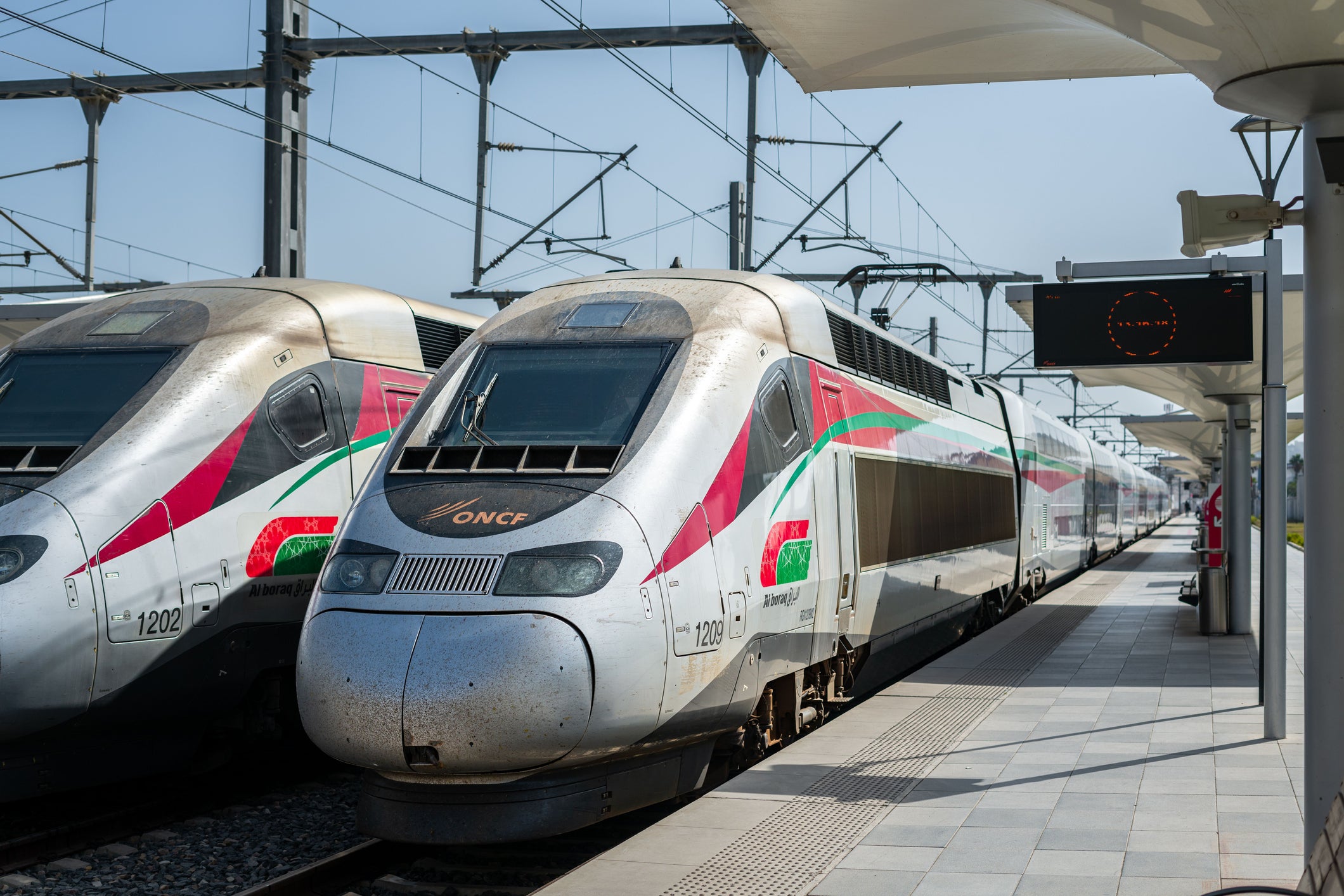High-speed rail tunnel to link Europe to Africa gets EU feasibility funding
The Spanish government on Friday confirmed funding for a study looking at a link to Morocco

Your support helps us to tell the story
From reproductive rights to climate change to Big Tech, The Independent is on the ground when the story is developing. Whether it's investigating the financials of Elon Musk's pro-Trump PAC or producing our latest documentary, 'The A Word', which shines a light on the American women fighting for reproductive rights, we know how important it is to parse out the facts from the messaging.
At such a critical moment in US history, we need reporters on the ground. Your donation allows us to keep sending journalists to speak to both sides of the story.
The Independent is trusted by Americans across the entire political spectrum. And unlike many other quality news outlets, we choose not to lock Americans out of our reporting and analysis with paywalls. We believe quality journalism should be available to everyone, paid for by those who can afford it.
Your support makes all the difference.An undersea tunnel could one day connect Europe's high-speed rail network to north Africa under plans revived by the Spanish and Moroccan governments.
Spain on Friday confirmed €2.3 million (£2 million) in funding for a design study on the Gibraltar strait fixed link – a planned railway tunnel linking the country with Morocco.
It comes after the two governments said in April they wanted to re-launch the mothballed project, which has been on ice since 2009.
The so-called "Europe-Africa Gibraltar strait fixed link" could resemble the Channel Tunnel between Dover and Calais and bridge the nine-mile continental divide.
The plan was first seriously suggested in the 1970s and formalised in the 1980s, yet progress on the project has been slow.
A joint committee set up to push the tunnel forward has not met since 2009 and the two national bodies responsible for exploring the idea received no funding – until now.
The opening of Morocco's first high-speed rail line in 2018 has given the idea of linking the continents new impetus and raised hopes that the two continents could one day be connected by fast express train.
“After fourteen years, from Tangier in October 2009, we are going to give impetus to the studies of a project of maximum geostrategic importance for our countries and for relations between Europe and Africa,” said Raquel Sanchez, Spain’s transport minister, at a meeting in April.
“We are beginning a new stage in the revival of the fixed link project across the Strait of Gibraltar, which we launched in 1981, hand in hand."
Morocco's northern port city of Tangiers is now the northern end of a 320 km/h (200mph) high speed rail line with services running to the capital Rabat and largest city Casablanca.
Spain's extensive high speed rail network also runs services to its own southern coast – raising the prospect that trains could one day run on intercontinental routes such as Casablanca to Madrid.
The latest cash to revive the project comes from the EU’s Recovery, Transformation & Resilience Plan, which has backed investments around the bloc since the Covid pandemic.
An entry in Spain's state gazette published on 16 June 2023 shows the Spanish government has now confirmed the "transfer of economic resources" to Spanish Society of Studies for a Fixed Link through the Strait of Gibraltar (SECEGSA), which will look at options for the project.
The proposed link is not the only ambitious such project under consideration in Europe. On the other side of the continent a tunnel linking the Finnish capital of Helsinki with Tallinn in Estonia has also attracted EU funding for feasibility studies.
Join our commenting forum
Join thought-provoking conversations, follow other Independent readers and see their replies
Comments